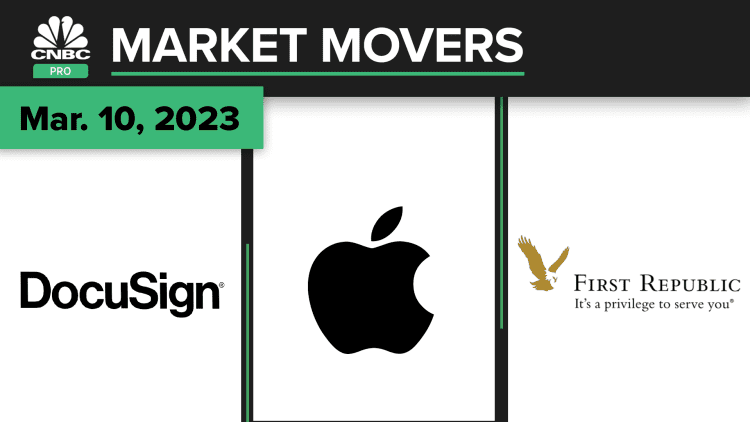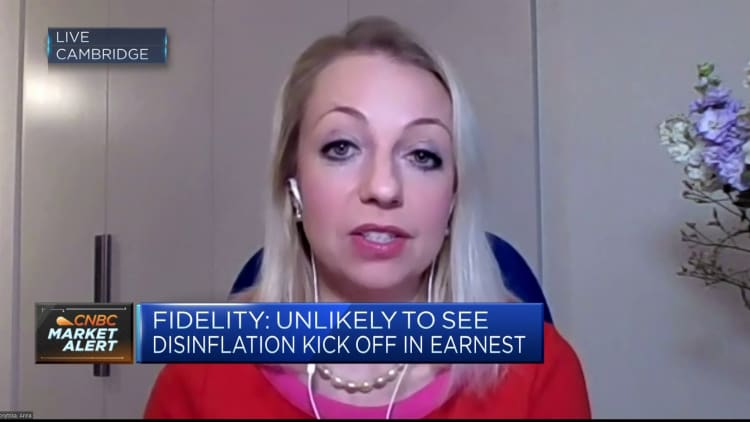
Stocks tumbled Friday as tech-focused lender Silicon Valley Bank shut down following losses in its bond portfolio, prompting the biggest bank failure since the global financial crisis and sending shockwaves through the banking sector.
The Dow Jones Industrial Average dropped for a fourth consecutive day, finishing 345.22 points lower, or 1.07%, to close at 31,909.64. The S&P 500 lost 1.45% to settle at 3,861.59. The Nasdaq Composite shed 1.76% to end at 11,138.89.
All the major averages capped off the week with losses. The Dow fell 4.44% to post its worst weekly performance since June. The S&P dropped 4.55%, while the Nasdaq lost 4.71%.
Regulators took control of Silicon Valley Bank on Friday, after shares tumbled Thursday and the bank struggled on Friday to find another company to buy it. Regional bank stocks tumbled in the wake of Silicon Valley Bank's demise, with the SPDR S&P Regional Banking ETF lost nearly 4.4%. For the week, the regional bank fund lost about 16%, its worst week since March 2020 as the pandemic hit.
"You had a major U.S. bank collapse, the biggest bank failure since 2008, inevitably that's going to spook the market," said Sylvia Jablonski, CEO and chief investment officer of Defiance ETFs. The failure, she added, is also fueling concern among investors over whether the contagion spreads beyond SVB.
Several bank stocks were repeatedly halted on Friday, including First Republic, PacWest and crypto-focused Signature Bank. First Republic dropped 14.8%, and PacWest shed 37.9%. Some bellwether bank stocks suffered smaller losses even as SVB's fallout wreaked havoc on regional names. Goldman Sachs and Bank of America fell 4.2% and 0.9% respectively. JPMorgan held onto a 2.5% gain.
"This is gamebook play, where traders and shorter term investors don't want to be long over the weekend," said Rich Steinberg, chief market strategist at The Colony Group.
The turmoil among bank stocks overshadowed a February jobs report, which gave some hints that inflation could be slowing. Payrolls increased more than expected, but investors focused on the smaller-than-expected gain in wages, which may cause the Federal Reserve to rethink its aggressive stance on rate hikes.



